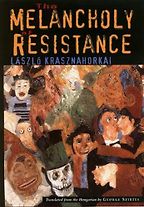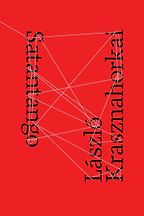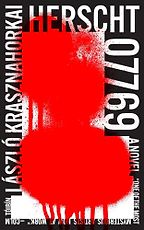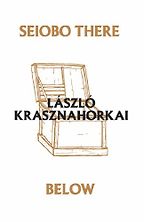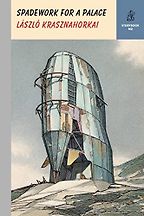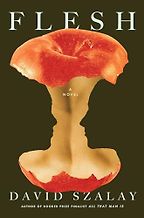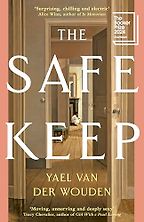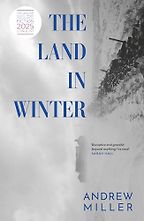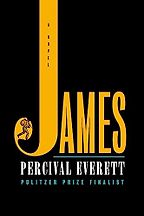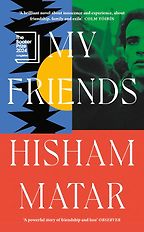
©Miklós Déri
Books by László Krasznahorkai
László Krasznahorkai (1954-) is a Hungarian novelist and screenwriter, born in Gyula near the border with Romania. In 2025, he won the Nobel Prize in Literature “for his compelling and visionary oeuvre that, in the midst of apocalyptic terror, reaffirms the power of art.” The Nobel Committee drew attention to his five epic apocalyptic novels—Satantango (1985), The Melancholy of Resistance (1989), War & War (1999), Baron Wenckheim’s Homecoming (2016), and Herscht 07769 (2021)—as books in the Central European tradition of Kafka and characterized by “absurdism and grotesque excess.” However, the Nobel Committee also emphasized “the more contemplative, finely calibrated tone” of books written after Krasznahorkai’s trips to Japan and China, including Seiobo There Below (2008).
The Melancholy of Resistance
by László Krasznahorkai & translated by George Szirtes
The Melancholy of Resistance (1989) was the first novel by Hungarian novelist and Nobel laureate László Krasznahorkai to be translated into English, published in 1998. Author Ellen Mattson, a member of the Swedish Academy that decides the winner of the Nobel Prize in Literature, called it "my absolute favourite among Krasznahorkai's novels." Set in a village in the Carpathians, the story revolves around a circus coming to town with what it advertises as "the biggest whale in the world and other sensational secrets of nature."
Satantango
by László Krasznahorkai & translated by George Szirtes
Satantango (1985) is the debut novel of Hungarian novelist László Krasznahorkai, and possibly his most accessible. The novel is relatively short—fewer than 300 pages—but the sentences (and paragraphs) are long, and it took a decade or so to translate. Set on a decaying collective farm, when it was published in English in 2012, the Guardian called it "brutal, relentless and so amazingly bleak that it's often quite funny." It also hailed it as "an obviously brilliant novel." It was also turned into a 7+ hour movie, directed by Béla Tarr.
Herscht 07769
by László Krasznahorkai & translated by Ottilie Mulzet
Herscht 07769 is the fifth of László Krasznahorkai's epic, apocalyptic novels, this one set in a small town in former Eastern Germany, rife with neo-Nazis. The main character, Florian Herscht, tries to warn Chancellor Angela Merkel that the end of the world is coming. The music of Johan Sebastian Bach, who was born in the same province, hovers in the background of the story.
Seiobo There Below
by László Krasznahorkai & translated by Ottilie Mulzet
Seiobo There Below is a collection of 17 stories by Hungarian novelist László Krasznahorkai, about the creation of art. Seiobo is the Japanese name for Xiwangmu, whose garden, according to Chinese legend, bears peaches of immortality every three millennia. According to Anders Olsson, Chair of the Nobel Committee, "alongside his quintet of epics, it represents Krasznahorkai's major work." Don't be confused by the chapter numbers; they go up like a Fibonacci sequence.
Spadework for a Palace: Entering the Madness of Others
by László Krasznahorkai & translated by John Batki
Spadework for a Palace is a short work by László Krasznahorkai—only 80 pages or so, but delivered in just one sentence—set in New York. The main protagonist is a librarian at the New York Public Library named 'herman melvill' who does not enjoy readers taking out books.
Interviews where books by László Krasznahorkai were recommended
Award-Winning Novels of 2025, recommended by Cal Flyn
What are the most highly acclaimed novels of the year? We asked Five Books deputy editor Cal Flyn to put together a summary of award-winning fiction of 2025—novels that won major literary prizes in the English-speaking world—as one answer to this impossible question.
